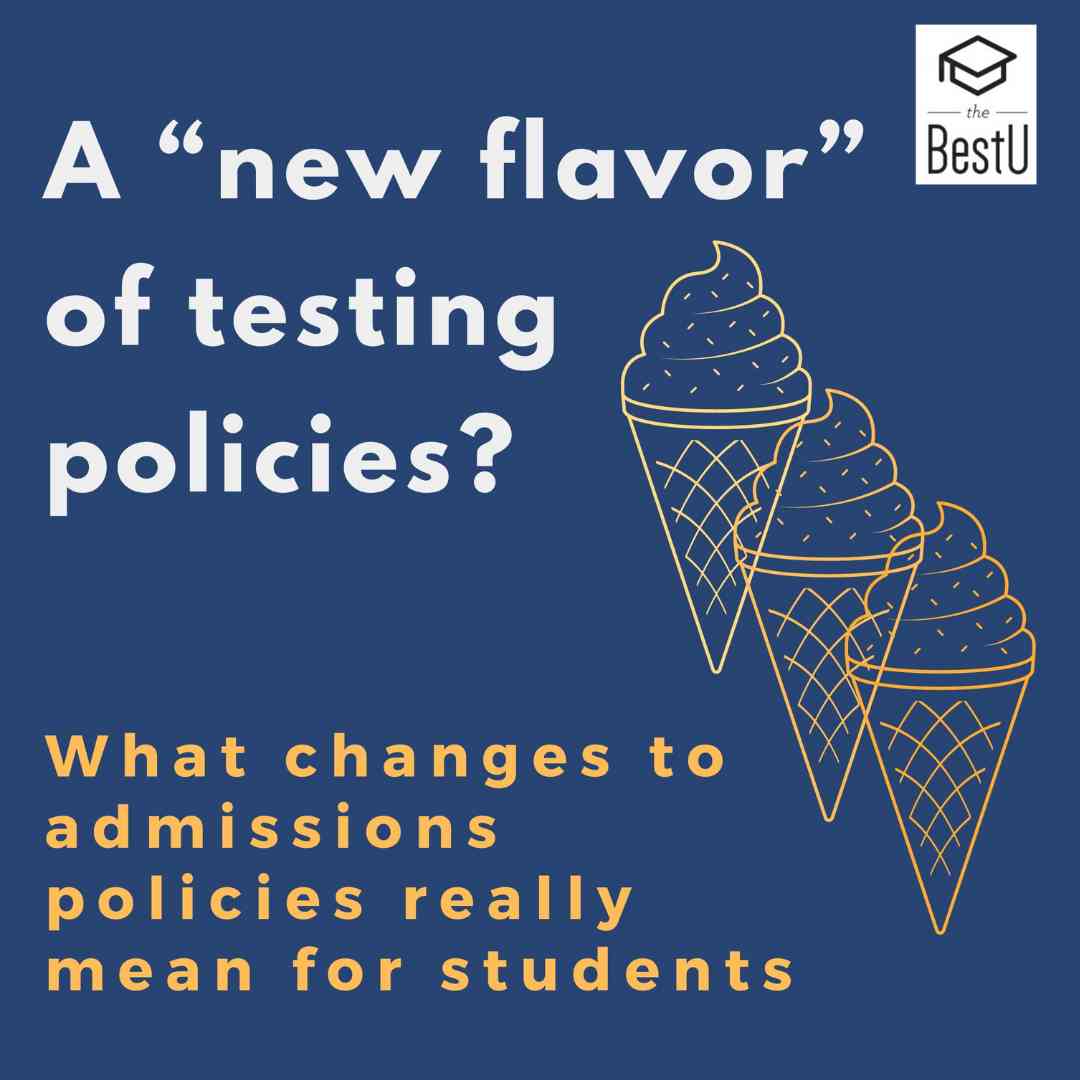
What Changes to test optional policies really mean for students
You may have heard that Yale University is the most recent of the elite colleges to announce that testing is back in admissions. What caught our attention in the announcement is that Yale’s Dean of Undergraduate Admissions Jeremiah Quinlan touted a ‘new flavor’ to their now test flexible policy…
Read on for what these changes to testing policy mean for admissions in the years to come –
What’s the latest news on testing policies in admissions?
In February 2024, both Dartmouth and Yale announced changes to the test optional admissions policies they have held since the early pandemic in 2020
● Both institutions will require the submission of test scores for a complete application to be considered beginning with the college class of 2029, also known as the high school class of 2025. Dartmouth and Yale are notable for being the first Ivy League schools to return to testing requirements, and follow MIT which reinstated the testing requirement in 2022.
● While other Ivies including Princeton, Harvard, and Cornell have extended their test optional policies through the high school class of 2025 at least, Columbia has stated that their test optional policy will remain permanent.
● An announcement is expected in the coming months from Brown University where a committee is currently reviewing admissions policies regarding testing, early decision and legacy admissions.
● In the University of California and Cal State University systems, admissions became test blind in 2022 and is expected to remain so.
● Currently, more than 1900 colleges and universities maintain test optional admissions policies, but changes at high profile elite universities may be a harbinger of more changes to come.
What’s different about these policies?
The ‘new flavor’ of testing policy at Yale and, to a lesser extent, Dartmouth is where things get interesting.
● Yale is now offering what it calls a ‘test flexible’ policy. This means students must submit test scores but can choose to submit SAT, ACT, AP or IB scores.
● Notably, if a student opts to submit AP or IB scores the expectation is that the applicant will provide all scores for exams taken. This means a student cannot opt to submit APs, but pick and choose only those exams where they’ve earned their highest marks.
● At Dartmouth, US applicants will still be required to submit ACT or SAT scores, but international applicants will have the flexibility to report either 3 AP exam scores, or final or predicted results of IB or British A-Level exams. This is meant to acknowledge the difficulty in accessing ACT or SAT testing for some international applicants.
● Both institutions cite a desire to shift the testing conversation away from a narrow focus on the middle 25-75% of scores to consider exams in a local context. Among other reasons for this shift, this is meant to encourage students attending high schools with lower average scores that they will benefit from the consideration of the strength of their scores in the context of their school or local community. We can expect scores will be evaluated not just against the typical admitted applicant, but in the context of a student’s high school and community.
What does this really mean for students?
For one, we encourage students and families to recognize that while the policies are changing, the practices of admissions offices are not shifting dramatically. In truth, requiring scores is probably a more transparent approach, as scores have continued to be an important admissions factor at the most selective universities, even while test optional policies have been in place. It has continued to be the case that students with scores that look like typical admitted applicants have a stronger likelihood of admission and we don’t expect this to change; however, testing has always been only one component in a constellation of admissions considerations.
While it continues to be advantageous for most students to prepare for and take either the SAT or ACT exam a couple of times in preparation for the admissions process, this is not the only way forward. There are many excellent colleges that have had a historical commitment to evaluating students holistically without test scores – these institutions have had test optional admissions prior to 2020, and in some cases have held these policies for decades. For any student who feels testing is not the best representation of their strengths, we would encourage them to build a college list that includes these historically test optional schools.
As we go forward from here, we expect to see more colleges revisiting their pandemic test optional policies, and we anticipate seeing more schools adopt ‘flexible’ approaches. Looking honestly at the test scores of admitted applicants will continue to be one important factor, but never the only factor, in determining your own admissibility to a college of interest.
TBU Advisors are experienced in supporting students to navigate their college choices and personal best fit. Our passion is helping you make a plan that takes the overwhelm out of the process, empowers you to become your own best you, and puts your best self forward in your admissions process & applications.
If you’d like to explore working with a TBU Advisor, get in touch here and we will look forward to connecting with you.
Looking for more insights like these? Join us on our Membership Platform for exclusive content, live webinars, and the resources and tools to unstick your college process.
